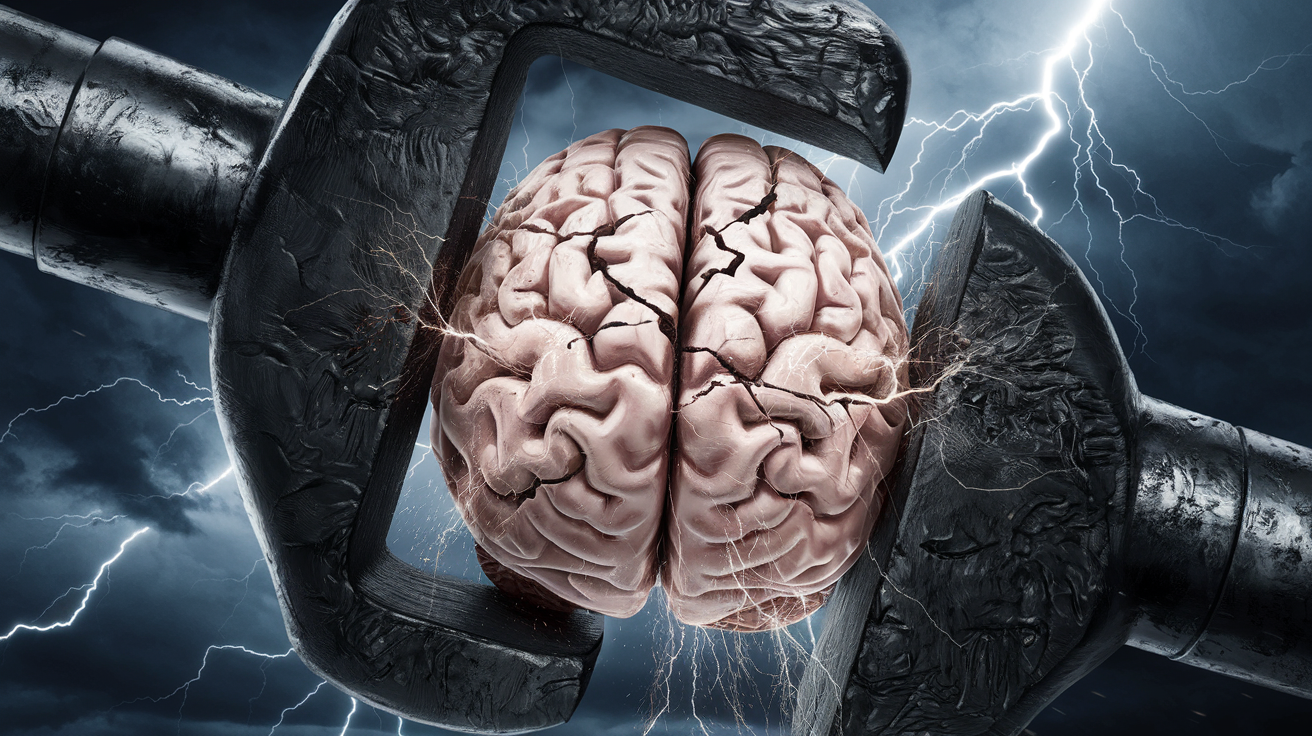
5 Ways Chronic Stress Changes Your Brain (and How to Reverse the Effects)
Have you noticed that stress affects you differently than it used to? Maybe you’re more irritable, have trouble focusing, or feel mentally drained more often. These changes aren’t just in your head—chronic stress physically rewires your brain.
In small doses, stress can be helpful, sharpening your focus and giving you an energy boost when facing challenges. But when stress becomes a constant presence, it can reshape your brain, affecting your emotions, memory, and decision-making abilities. The good news? Your brain is adaptable, and you can take steps to protect it.
Let’s explore five key ways chronic stress impacts the brain—and, more importantly, what you can do about it.
1. The Amygdala Becomes Overactive
The amygdala is your brain’s alarm system, detecting potential threats and triggering emotional responses. Chronic stress causes the amygdala to enlarge, making it more sensitive. This can lead to heightened anxiety, irritability, and an exaggerated reaction to everyday stressors.
What You Can Do:
-
Mindfulness practices like meditation help regulate amygdala activity. Even five minutes a day can reduce stress-related overactivity.
-
Controlled breathing (such as four-second inhales and exhales) activates the body’s calming response, reducing the amygdala’s hypersensitivity.
2. The Hippocampus Shrinks
The hippocampus plays a key role in memory and learning. Chronic stress reduces its size, making it harder to retain information and recall details. This can lead to forgetfulness, brain fog, and difficulty processing new information.
What You Can Do:
-
Quality sleep is essential for memory consolidation. Aim for 7-8 hours per night and maintain a consistent bedtime.
-
Regular exercise promotes neurogenesis (the growth of new brain cells) in the hippocampus, helping to restore its function.
3. The Prefrontal Cortex Weakens
The prefrontal cortex, often called the “CEO of the brain,” helps with decision-making, impulse control, and emotional regulation. Chronic stress weakens its function, making it harder to focus, regulate emotions, and resist impulsive reactions.
What You Can Do:
-
Physical activity, even a 30-minute walk, enhances prefrontal cortex function by improving blood flow and reducing stress hormones.
-
Structured routines support cognitive function. Organizing your day with clear priorities can ease the burden on your prefrontal cortex.
4. Brain Communication Networks Slow Down
Stress disrupts how different areas of the brain communicate, making it harder to adapt to change, shift out of negative thought patterns, and recover from stressful experiences.
What You Can Do:
-
Break stress cycles with small resets. Taking short breaks throughout the day prevents stress from accumulating.
-
Engage in novelty. Learning something new, changing your environment, or even taking a different route to work can enhance brain flexibility.
5. Cortisol Rhythm Becomes Disrupted
Cortisol, the body’s primary stress hormone, follows a daily rhythm, peaking in the morning and declining at night. Chronic stress can flatten this pattern, leaving you feeling exhausted when you should be alert and wired when you should be winding down.
What You Can Do:
-
Sunlight exposure in the morning helps reset your cortisol rhythm. Spend at least 10-15 minutes outside early in the day.
-
Limit stimulants like caffeine later in the day to prevent further cortisol disruption.
How to Protect Your Brain from Stress-Related Changes
The key to reducing stress’s impact on your brain is building habits that support resilience. Here are three foundational strategies:
✅ Prioritize Sleep – Sleep is when the brain repairs itself. Stick to a regular sleep schedule and create a wind-down routine to improve sleep quality.
✅ Move Daily – Exercise doesn’t have to be intense. A simple walk or stretching session reduces stress hormones and supports brain health.
✅ Use Stress Circuit Breakers – When you feel stress building, take three slow breaths, count to four on each inhale and exhale, and focus on the present moment. These quick resets help prevent stress from becoming chronic.
Final Thoughts
Stress is unavoidable, but chronic stress doesn’t have to take over your brain. By incorporating small but impactful changes, you can protect your mental well-being and enhance your brain’s resilience.
Looking for a structured way to manage stress and build resilience? The Essential Tools Card Deck provides practical strategies for handling stress in real time, helping you reset your mind when you need it most.
Take the first step in strengthening your brain against stress—your future self will thank you.
👉 Grab your Essential Tools Card Deck
Comments
Deepal said:
Dr Tracy Marks! You are amazing teacher. You explanations are very lucid and succinct. Thank you! There are lot of people like me who cannot afford professional help, who rely on books, blogs, podcasts, videos.
I want to make a suggestion: At the end of your videos would you mind suggesting resources to dig deeper into the subject. Book; blogs or even a subject that we can dig to learn more. I was watching your 6 Negative Stories video and wished I had more to dig into and build a program around it. I know you mentioned dialectic therapy. Would love to hear more on that topic. Also on EMDR.
Thank you keep up the good work.
Deepal